6 ways to boost a child’s language skills

While it’s not possible to rush a child’s developmental processes, there are things you can do to encourage the development of language. Research has shown that the quality of the interactions a child has with you and other caregivers, probably matters the most.
The following is a summary of what can help you nurture Your Child’s language skills:
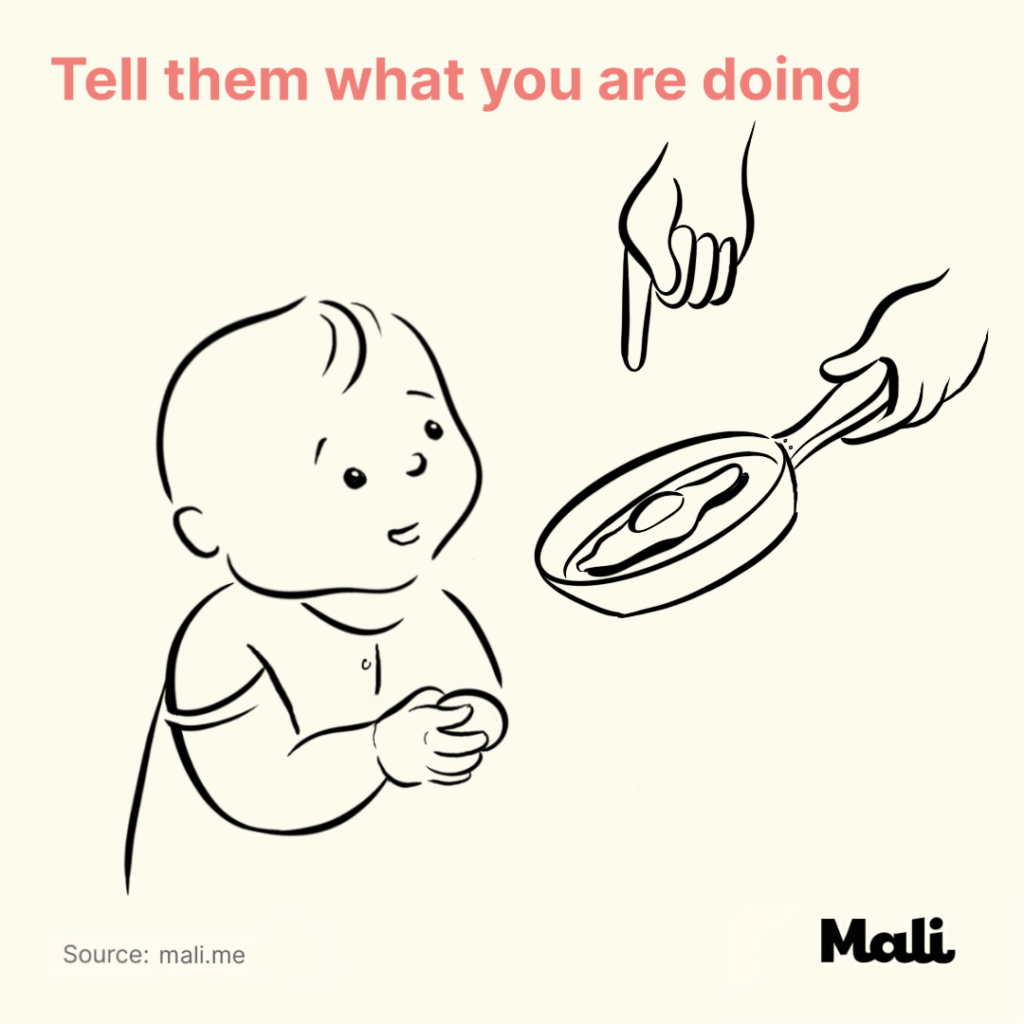
Tell Your Child what you are doing: Form the habit of talking to Your Child throughout the day, explaining the events of the day as they happen. As you do your daily chores, explain to your child what you’re doing. If you are cooking, tell your little one what you’re cooking. When you’re about to bath Your Child talk about what you’re doing — “I’m pouring water on your belly.”
During the idle moments of the day, tell Your Child some stories. You can dramatize and act the various characters in the stories to make the stories more vivid. Even if Your Child has no idea what you are talking about, the exposure to speech is effective in building vocabulary and helps Your Child learn the rules of grammar.
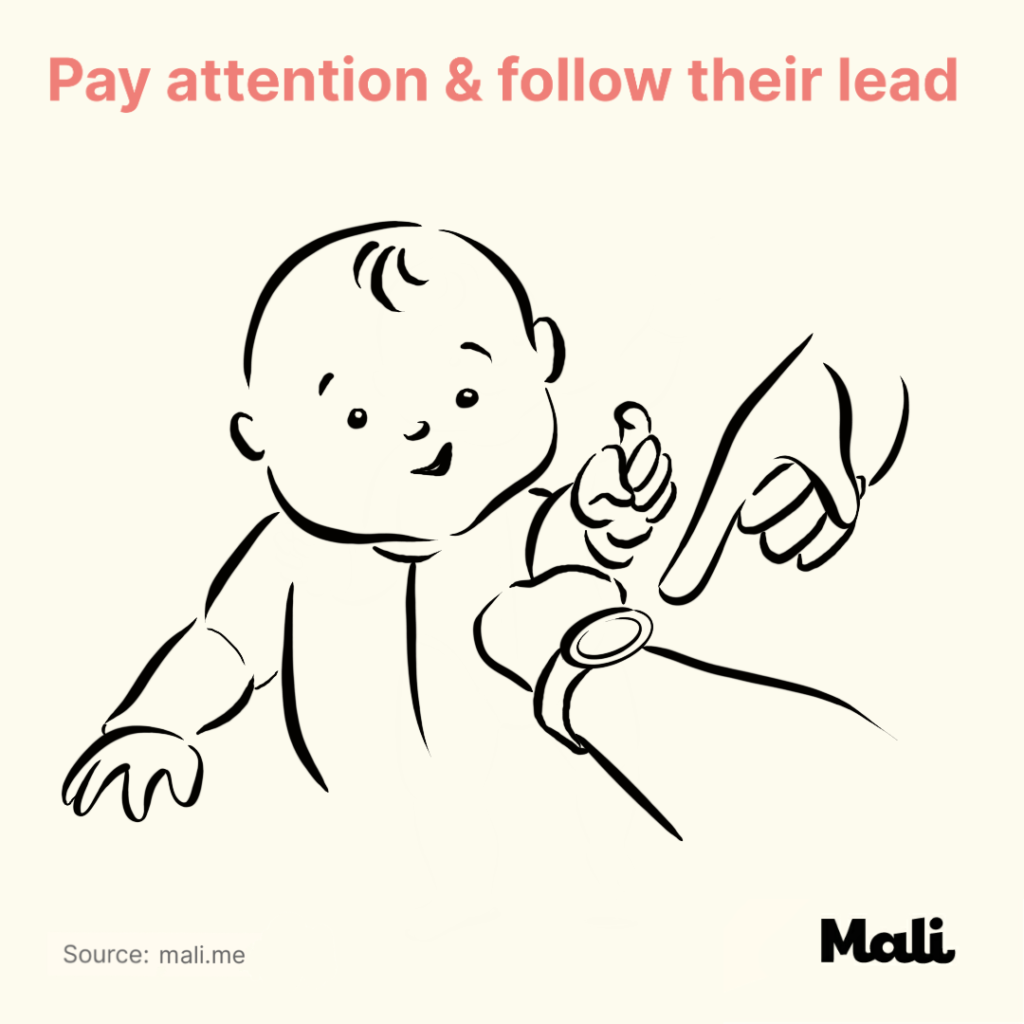
Pay attention and follow Your Child’s lead: Babies love to know that you’re paying attention to their signals (‘a serve’) and look forward to your response (‘the return’) This “serve and return” is the bedrock of a baby’s learning process.
By paying attention to Your Child, you can learn what the little one is interested in, which is then what you want to talk to them about. If Your Child is pointing at your wristwatch, that’s the time to tell them about its shape, the movement, and what it is used for. Multiple studies show that children learn more when we talk about the things they are interested in.
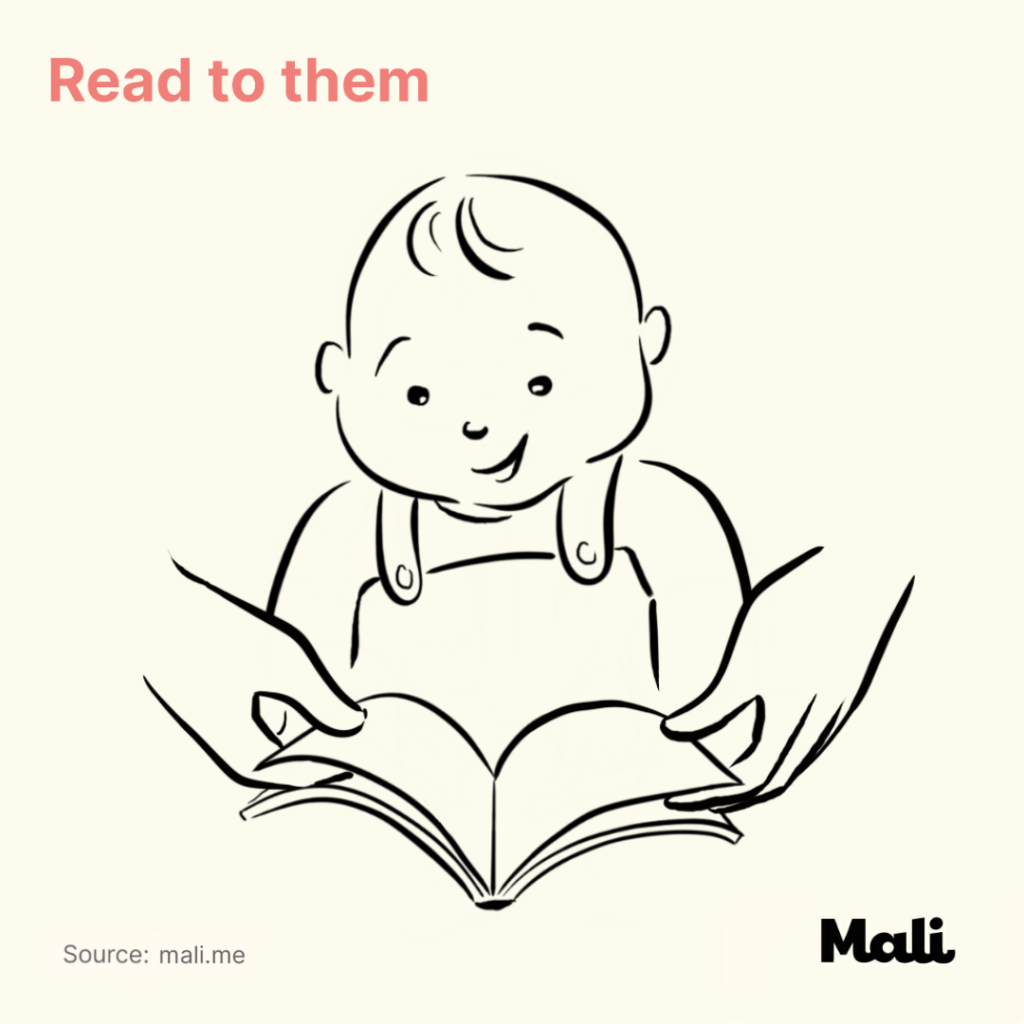
Read to Your Child: Make out time to read to Your Child every day. And preferably, don’t read idly — allow Your Child to be looking at the book with you, seeing the words and the pictures. If the little one points at a picture, tell them what it is. When the child gets older, you can point at pictures or words and ask them what you’re pointing at.
You can start engaging your baby with the book you’re reading from as early as three months when their vision is good enough to focus on the different elements in a book.
Start with simple board books and gradually move to picture books and longer stories as Your Child gets older.
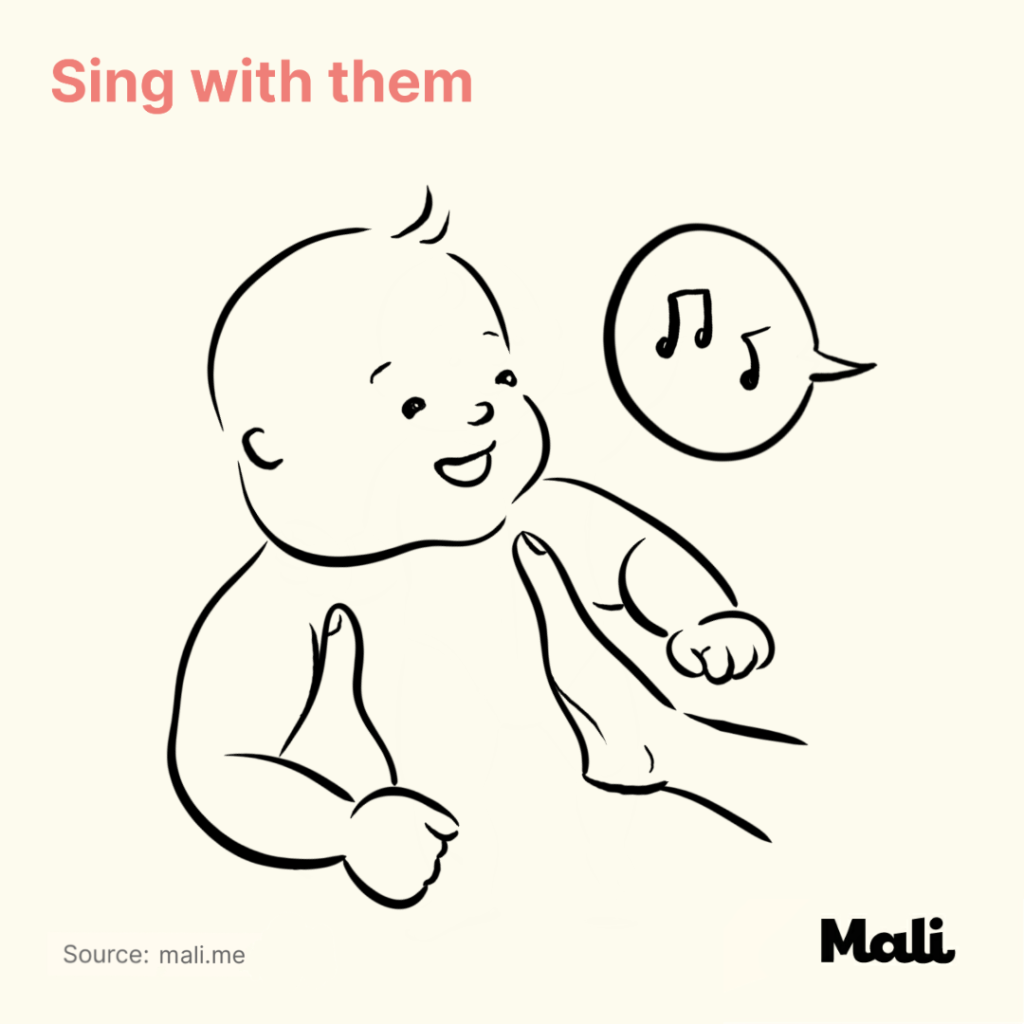
Sing with Your Child: Babies and toddlers love the rhythm of songs and often stop to listen when they hear a song they like. Try to sing to and with Your Child whenever you can. You can use simple songs or nursery rhymes, like the “Open Shut Them” or “Twinkle, Twinkle Little Star.”
That babies love music doesn’t mean you should leave Your Child alone watching videos and think they will learn that way. For most children, it is quality time with you and other people around, which leads to the best and more positive learning experience.
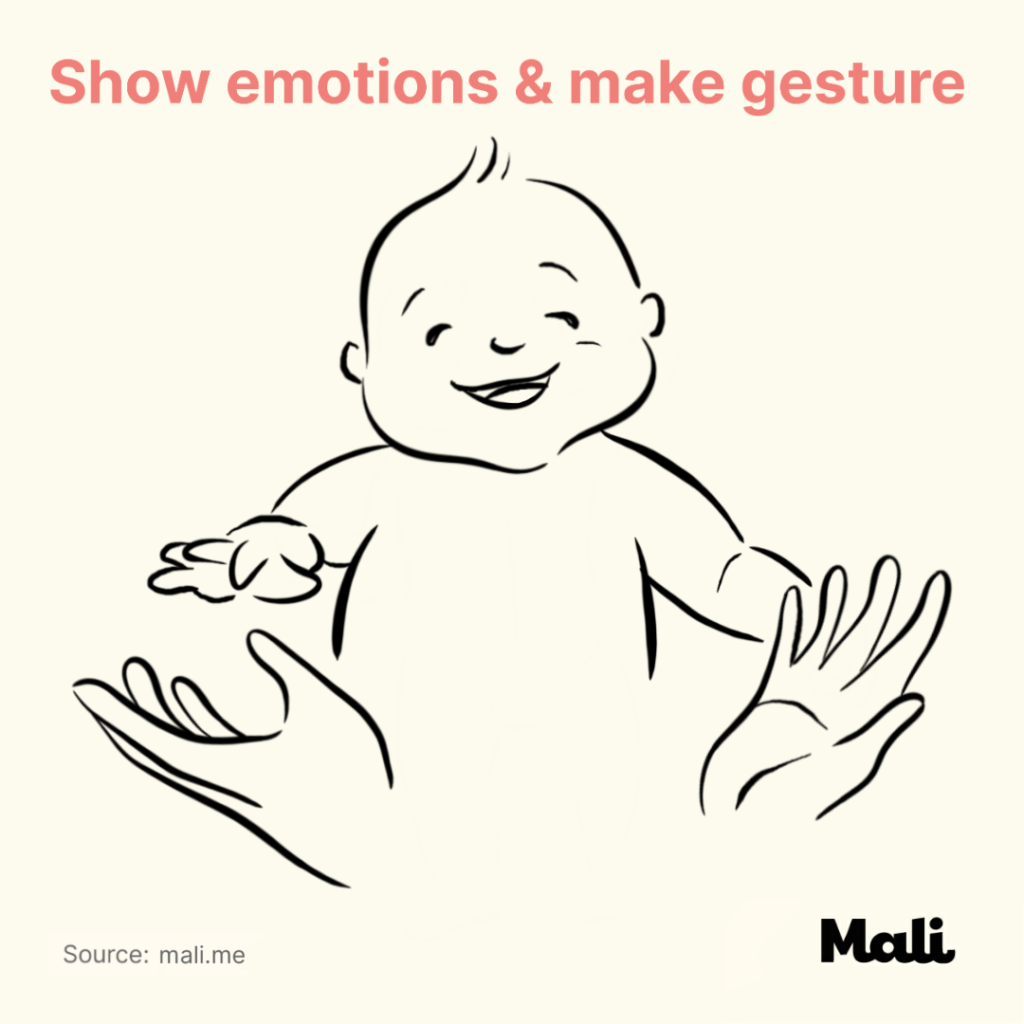
Show emotions and make gestures: Little children don’t just learn from spoken words alone. They also learn from your gestures and emotions expressed in the tone of your voice. The movements you make while talking and the emotions in your voice help them to figure out the context of what you’re saying.
One study, for example, found that if you shake a toy gently while mentioning the name, it is easier for an infant to know the toy by its name. Thus, it may be beneficial to supplement verbal messages with expressive emotions, related movements, gestures, and other memorable experiences.
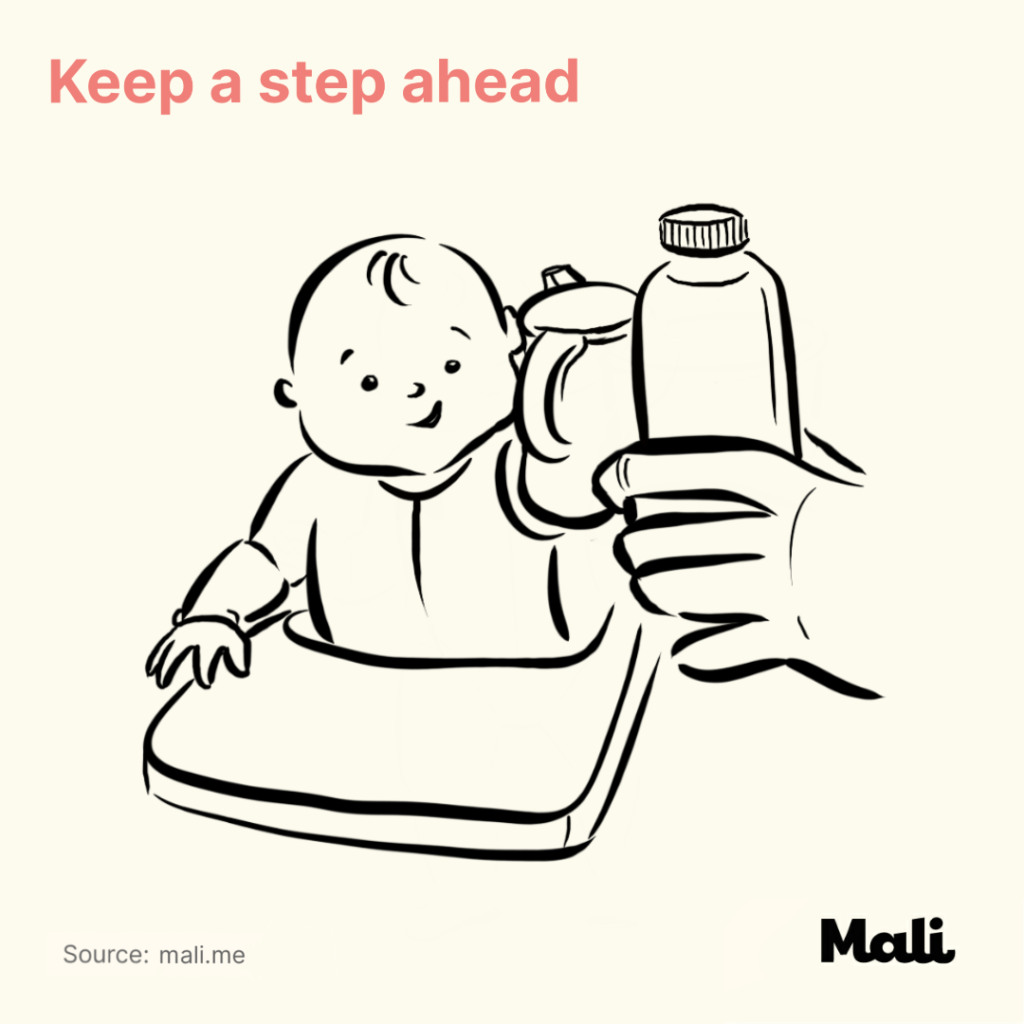
Keep it a step ahead: The last rule in our list is to keep things a step ahead of Your Child ‘s ability at each stage. In other words, don’t “talk down” to your child. For example, if Your Child uses “ba ba” for a bottle, you keep saying “bottle” to teach the little one the proper word and pronunciation.
Once children are at the stage where they can say a word correctly, expand on that. For instance, if Your Child says “ball”, you can say “white ball” (if the color is white), or if they point at a dog and say “dog”, return by saying “yes that big dog.”, and don’t forget to make sure Your Child sees your lips, so the little one knows how to physically make the sound.
Verified:
Dr. Ketsupa Jirakarn (Mental health specialist) (31 March 2021)



